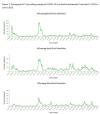Province urging high-risk residents to get spring COVID booster
Advertisement
Read this article for free:
or
Already have an account? Log in here »
To continue reading, please subscribe:
Monthly Digital Subscription
$1 per week for 24 weeks*
- Enjoy unlimited reading on winnipegfreepress.com
- Read the E-Edition, our digital replica newspaper
- Access News Break, our award-winning app
- Play interactive puzzles
*Billed as $4.00 plus GST every four weeks. After 24 weeks, price increases to the regular rate of $19.00 plus GST every four weeks. Offer available to new and qualified returning subscribers only. Cancel any time.
Monthly Digital Subscription
$4.75/week*
- Enjoy unlimited reading on winnipegfreepress.com
- Read the E-Edition, our digital replica newspaper
- Access News Break, our award-winning app
- Play interactive puzzles
*Billed as $19 plus GST every four weeks. Cancel any time.
To continue reading, please subscribe:
Add Free Press access to your Brandon Sun subscription for only an additional
$1 for the first 4 weeks*
*Your next subscription payment will increase by $1.00 and you will be charged $16.99 plus GST for four weeks. After four weeks, your payment will increase to $23.99 plus GST every four weeks.
Read unlimited articles for free today:
or
Already have an account? Log in here »
Hey there, time traveller!
This article was published 20/03/2023 (949 days ago), so information in it may no longer be current.
COVID-19 boosters are available for high-risk Manitobans this spring, and most Manitobans will likely be eligible for their next booster in the fall.
On Monday, the province announced its updated vaccine guidance, which follows the latest recommendations from Canada’s National Advisory Committee on Immunization earlier this month.
Spring boosters are being recommended for seniors over the age 65, immunocompromised adults, Indigenous people over age 45 and long-term care residents.
(Justin Sullivan/Getty Images/TNS)
COVID boosters are being recommended for seniors over the age 65, immunocompromised adults, Indigenous people over age 45 and long-term care residents.
The province is anticipating a wider booster rollout in the fall, so Manitoba Health is advising those who are eligible now to discuss the timing of getting their booster with their doctor. Waiting six months between booster shots is recommended, as is waiting six months after contracting COVID to receive a shot.
If they can’t wait six months, people should at least wait until they’re recovered from the infection, the recommendations suggest.
Pharmacies and medical clinics should offer the bivalent vaccine as the first choice, but can also provide monovalent vaccines, as per a memo to health practitioners from the Health Department’s communicable disease control section sent March 17.
Provincial vaccine supersites are no longer operating — the Notre Dame Avenue location shut down last month — but Manitobans can book a vaccine appointment by phone or online through the vaccine call centre at 1-844-626-8222 or at: http://wfp.to/0qC.
The current recommendations are for individuals considered to be at-risk only. Widespread eligibility hasn’t opened up, meaning Manitobans who received their full series of vaccines and boosters up to last fall shouldn’t expect to get another this spring unless they fall into a high-risk category. Vaccines are still being encouraged for the unvaccinated.
Manitoba has seen case counts, hospitalizations and outbreaks creeping up slightly over recent weeks, according to the limited data publicly reported in the province’s weekly respiratory virus surveillance reports. Recent wastewater data also shows a bit of an upward trend in some areas of Winnipeg. The variant XBB.1.5, another subvariant of Omicron, is responsible for the rise, said Winnipeg medical microbiologist Dr. Philippe Lagacé-Wiens.
“We know that particular variant is mutated enough that it can escape some immunity, both from vaccine and from previous infection, and so it was expected that it might cause a bit of an increase in cases. It now accounts for probably a little more than half of the cases that we’re seeing,” he said.
Most of the testing performed now is done in hospital or in outbreak settings, so most people testing positive for COVID-19 won’t be reflected in the data.
Universal mandates on masking and vaccines may be over, but staying home when sick and wearing masks in public can still make a noticeable difference, Lagacé-Wiens said.
“If we follow some very basic recommendations, I think we can still have an impact on transmission,” he said.
Cases and hospitalizations dipped slightly last week, but have been rising over time, and the provincial test-positivity rate has risen to 14.7 per cent.
There were 129 lab-confirmed COVID cases, 53 hospitalizations and nine intensive-care admissions recorded during the week of March 5-11, the province’s most recent respiratory virus report shows.
The previous week, there were 150 cases, 59 hospitalizations, eight ICU admissions and a test-positivity rate of 14.2 per cent.
katie.may@winnipegfreepress.com

Katie May is a multimedia producer for the Free Press.
Our newsroom depends on a growing audience of readers to power our journalism. If you are not a paid reader, please consider becoming a subscriber.
Our newsroom depends on its audience of readers to power our journalism. Thank you for your support.



